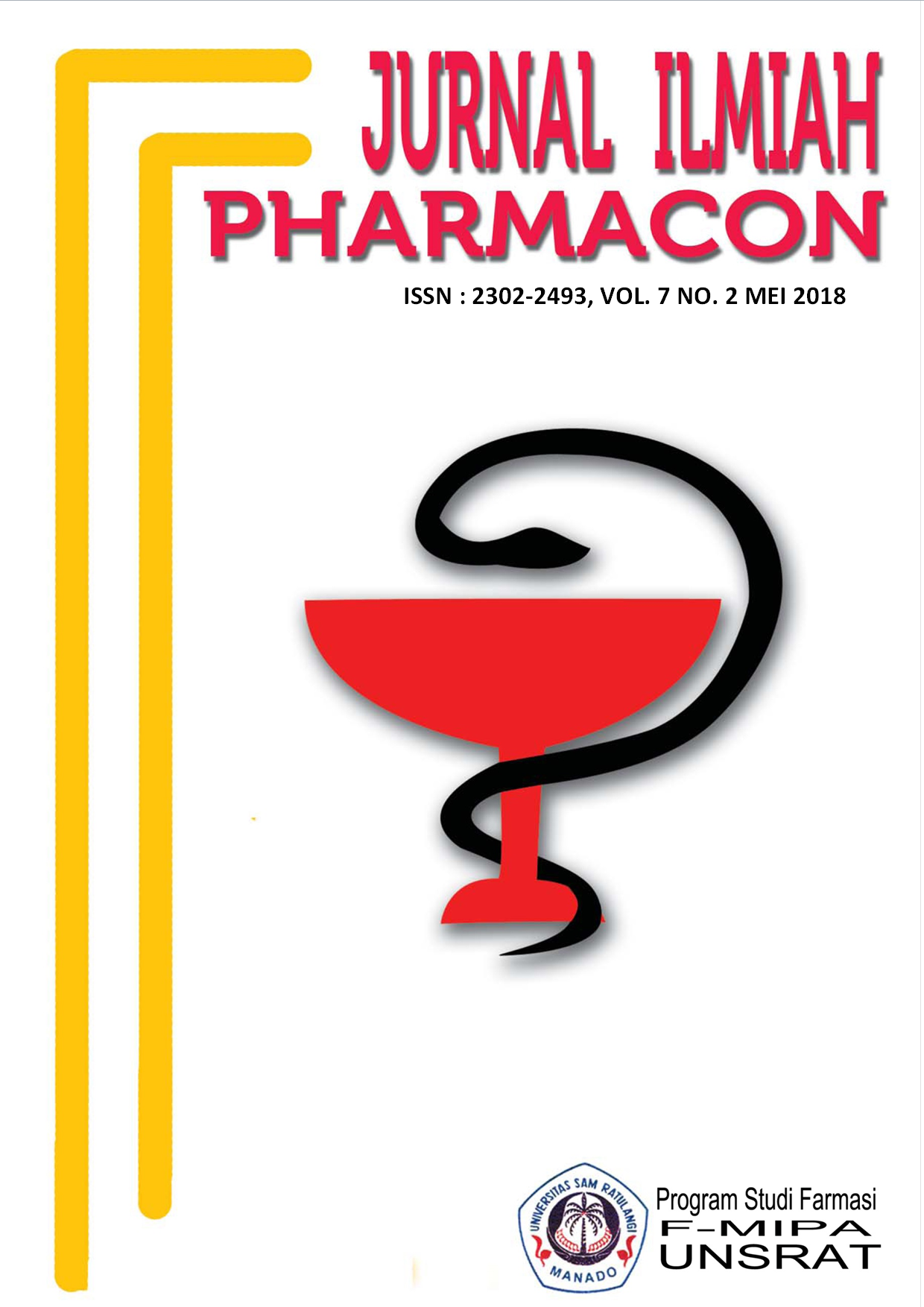NILAI PEROKSIDA (PV) DARI BAKASANG IKAN TUNA (Thunnus sp.) PADA BEBERAPA KONDISI PENGOLAHAN
DOI:
https://doi.org/10.35799/pha.7.2018.19366Abstract
NILAI PEROKSIDA (PV) DARI BAKASANG IKAN TUNA (Thunnus sp.) PADA BEBERAPA KONDISI PENGOLAHAN
Vike W. Monintja1), Feti Fatimah1), Vanda S. Kamu1)
1)Jurusan ÂÂÂÂKimia FMIPA UNSRAT Manado, 95115
Â
ABSTRACT
The research has been done about peroxide number of tuna fish sauce with 10 and 15 days fermentation time,temperature 50  and 70 , salt content 20% and 30%. The results showed that peroxide number in tuna fish sauce increases with fermentation time temperature and salt content. The best value for the PV is 2,8044 mEq/kg on tuna fish sauce treated in 10 days fermentation time, temperature 50  and 20% salt content.
Keywords        : fish sauce, tuna fish, fermentation, peroxide
Â
ABSTRAK
Telah dilakukan penelitian nilai peroksida (PV) dari bakasang ikan tuna (Thunnus sp.) dengan waktu fermentasi 10 dan 15 hari, suhu 50  dan 70 , kadar garam 20% dan 30%. Hasil yang diperoleh menunjukkan bahwa kandungan bilangan peroksida yang terdapat pada bakasang ikan tuna meningkat seiring bertambahnya waktu fermentasi, suhu dan kadar garam. Nilai terbaik untuk uji bilangan peroksida (PV) yaitu 2,8044 mEq/kg pada bakasang ikan tuna yang diolah dengan waktu fermentasi 10 hari, suhu 50  dan kadar garam 20%.
Kata kunci     : bakasang, ikan tuna, fermentasi, peroksida
Â
Â
Â
Downloads
Published
How to Cite
Issue
Section
License
Authors who publish with this journal agree to the following terms:
- Authors retain copyright and grant the journal right of first publication with the work simultaneously licensed under a Creative Commons Attribution-NonCommercial 4.0 International License that allows others to share the work with an acknowledgement of the work's authorship and initial publication in this journal.
- Authors are permitted and encouraged to post their work online (e.g., in institutional repositories or on their website) prior to and during the submission process, as it can lead to productive exchanges, as well as earlier and greater citation of published work (See The Effect of Open Access)










